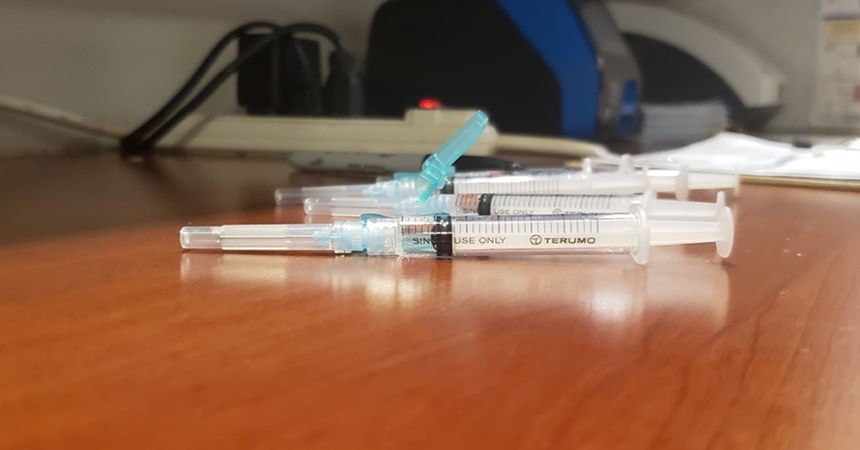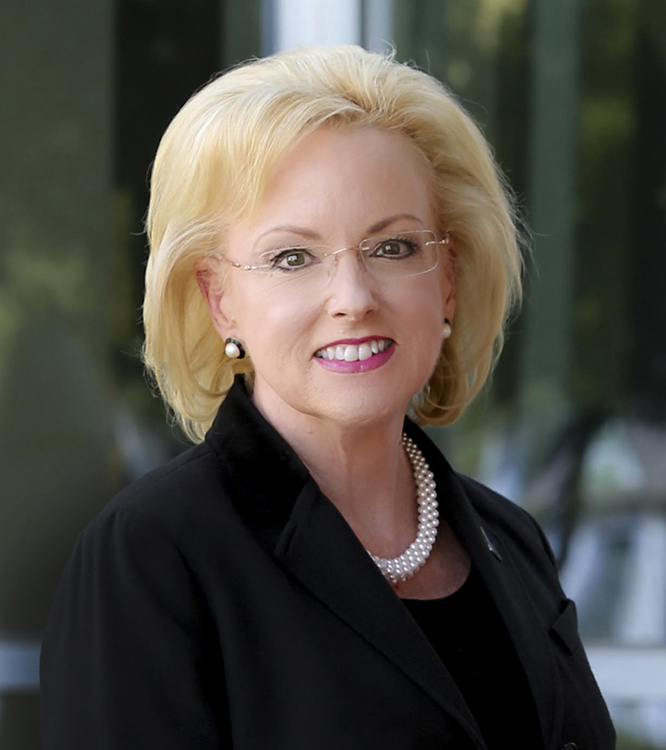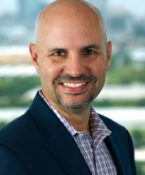COVID-19: How HSC is bringing vaccines to Fort Worth’s homeless
People find shelter from their homelessness during the day at the True Worth complex that sits southeast of downtown Fort Worth.
They can shower, grab lunch and create a resume.
On June 21, the homeless who stopped at True Worth received COVID-19 vaccines. The day shelter’s lobby served as a COVID-19 vaccine clinic staffed by health care providers and employees from The University of North Texas Health Science Center at Fort Worth (HSC).
“We were front and center,” said Dr. Christina Robinson, Medical Director of HSC’s Pediatric Mobile Clinic. “As individuals came in to use other services, they could sign up to receive their COVID-19 vaccine.”
Thirty-five people were vaccinated at True Worth, which is located at 1513 E Presidio St. They received one dose of the COVID-19 vaccine produced by Johnson & Johnson.
“In our first few minutes of setting up, we had 10 people rush to us because they wanted to sign up and get registered to get their vaccine,” Dr. Robinson said. “It was phenomenal. Then, it happened again in the second hour.”
This outreach was part of an ongoing effort by HSC, Tarrant County, EMS and other community organizations to take the COVID-19 vaccines into hard-to-reach communities. Across Tarrant County, HSC has set up vaccine clinics at several locations, including schools, churches and community centers.
The True Worth vaccine site started with a query from Callie Frank, a first-year student at the Texas College for Osteopathic Medicine (TCOM).
“I’m reaching out because I’d like to hold a vaccine clinic at True Worth,” stated the April 16 email to HSC’s Community Relations. “Our homeless population faces unique barriers to vaccine registration and access. There is a lack of secure address/emails/phones required for registration, lack of consistent access to internet for appointment notifications and importantly lack of reliable transportation to/from vaccination locations.”
Frank wanted to bridge a health care disparity that was worsened by the pandemic.
“Unhoused populations were already vulnerable, so the pandemic exacerbated that disparity,” Frank said. “Shelters in the area had to really limit the number of people they could serve and many were left scrambling for necessities. The impact of the pandemic on this specific population of people is indescribable.”
HSC is working to eliminate health disparities
HSC, driven by its core value to Serve Others First, is committed to helping deliver health care and improving access to all Texans through service and education.
Helping vulnerable communities has long been the mission of TCOM students who assist local shelters as part of Homeless Outreach through Medical Education (HOME) clinic. But those efforts were stalled by the pandemic.
“When vaccines became available to the public earlier this year, I knew it was important to make sure that such a vulnerable population was able to get access,” Frank said.
Frank said several people at the clinic told her they had made appointments for the vaccine, but ended up missing their appointments. Others said they wanted to get the vaccine but didn’t know how to get it.
“I think it’s important to meet people where they’re at and this is quite literally true in this instance,” Frank said.
Dr. Robinson agreed, adding that health equity means taking the vaccine into the spaces that people frequent as they juggle daily routines, including shelters.
“One gentleman shared with me that he had a job interview later that week and he thinks that his proof of immunity will increase his odds of being hired,” Dr. Robinson said “He was so thankful.”
Some of the people had lost loved ones to COVID-19, Dr. Robinson said, recalling one woman’s worries about the virus and relief to get the vaccine.
“She was so scared of dying herself,” Dr. Robinson said.
At the True Worth site, people were eager to get protection against the virus.
“What resonated with me was that it is not that they were hesitant,” she said. “It wasn’t that they didn’t want the vaccine. They just needed to somebody to come to where they were and make it completely accessible.”





Social media